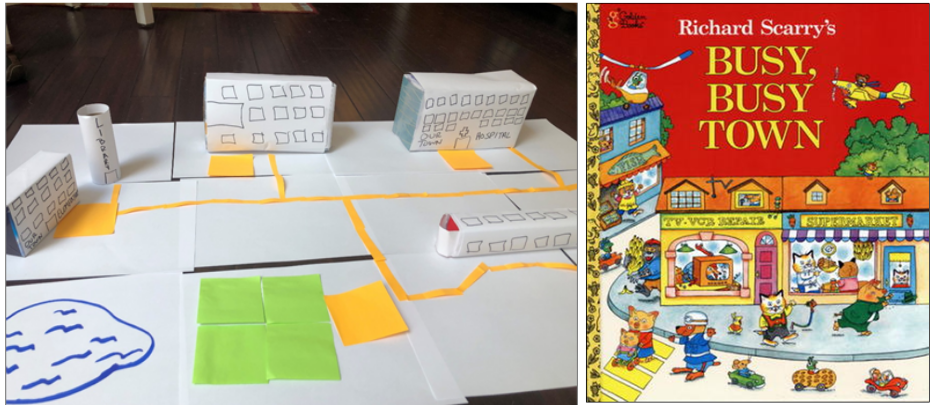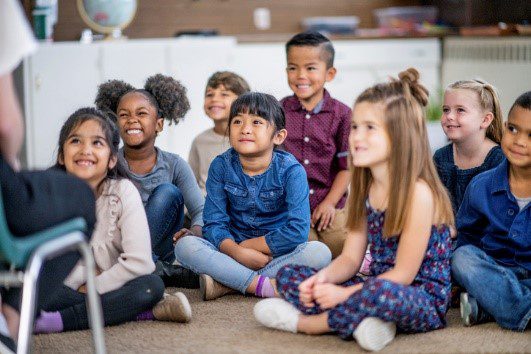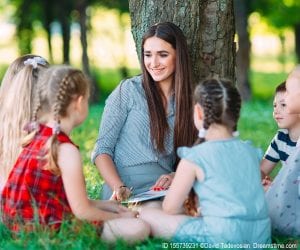You probably have memories of your eight-year-old self, crowding around a carpet in an elementary classroom, listening intently to a story read aloud by a favorite teacher. This scene plays out every day in classrooms around the world and for good reason – teaching with children’s books has innumerable benefits.
Read alouds improve vocabulary, increase reading comprehension, and highlight story patterns. But they also deepen skills and understandings outside of English Language Arts, helping students grasp complex topics, empathize with others, and learn about places and cultures outside of their own world. And these benefits don’t end after elementary school. Literature can, and should, have an important role in science, social studies and math classrooms far beyond fifth grade.
PopEd and Children’s Books are a Natural Fit
In PopEd, we strive to create learners who understand their place in their communities, both locally and globally, and consider their impacts on the natural world. We explore concepts like carrying capacity, crowding, global inequity, pollution, and exponential growth. These types of abstract concepts can be difficult for learners to wrap their brains around but can easily come to life when paired with a well-chosen children’s book. Reading about a group of people who cleaned up a local river, like in Lynn Cherry’s A River Ran Wild, can provide hope and inspiration after learning about water pollution. Seeing images of rice piling up after a young girl outsmarts the greedy raja in One Grain of Rice, brings the concept of exponential growth to light.
PopEd Activities Support Cross-Content Literacy – Free Lessons Coming Soon!
This quarter we’ll be sharing lesson plans that use children’s books to enhance understanding of the environmental and social issues related to population growth. We’ll also be sharing timely articles and other resources related to literature in the classroom and will investigating questions like “Why are good books banned?” and “How can I use books to bring diverse perspectives into my teaching?”

As always, we hope you’ll come along for the journey using #PopEdChildrensBooks and following PopEd on Facebook and Twitter.
Here’s a peek of what you can expect as we explore this important theme over the next two months:
- Interview with children’s author, Micheal Anderson, on the power of STEM in literature.
- Helping Hands, an elementary lesson plan where students listen to the European folk story, Stone Soup, and discuss how people come together to help one another. Then they cooperatively plan a school event to help others in their community.
- What is the Point of Children’s Books About the Climate Crisis? This helpful blog considers the role of climate fiction.
- Literacy Across the Curriculum: Using Children’s Books to Teach Environmental and Global Issues: An interactive, FREE webinar showcasing PopEd lessons that use children’s books across the content areas to teach topics related to large numbers, environmental stewardship, and global citizenship. Sign-up today!
For free access to more classroom resources, don’t forget to follow along on your favorite social media platform with the hashtag #PopEdChildrensBooks
Image credit: Children smiling (ID 1178221148 by FatCamera)





